|
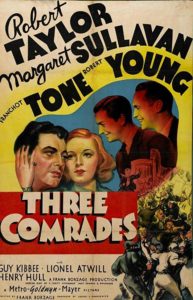
Synopsis:
After World War I ends in Germany, three soldiers — Erich (Robert Taylor), Otto (Francot Tone), and Gottfried (Robert Young) — start a taxi and auto repair business and meet a young woman (Margaret Sullavan) in remission from TB. When Erich falls in love with Sullavan, they decide to marry despite her health issues and his lack of money — but how long can their happiness last?
|
|
Genres:
- Franchot Tone Films
- Frank Borzage Films
- Friendship
- Illness
- Lionel Atwill Films
- Margarat Sullavan Films
- Monty Woolley Films
- Robert Taylor Films
- Robert Young Films
- Romance
- Veterans
Response to Peary’s Review:
Peary writes that this “lovely, much underrated romantic tearjerker” is “sensitively directed by Frank Borzage — one of the few Hollywood directors who sincerely believed in the power of love” — and “adapted from Erich Maria Remarque’s novel by F. Scott Fitzgerald”. He argues that this is a “very moving film, not only because of the love between the three men” but given “how three gallant men and one woman sacrifice all for love and principle”. He writes that “Sullavan is fabulous, reaching our emotions with every expression”; in Alternate Oscars, he names her Best Actress of the Year, adding: “She makes us sigh with her romantic words and glances (her characters always have different perspectives on life than those around her), delights us with her gentle humor, and makes our eyes fill with tears… [She] is wistful [and] haunted: as one listens to her distinct, throaty voice one immediately gets the uneasy feeling that Pat already has one foot in heaven.” He calls out the “wonderful final shot”, noting that in this powerful moment, Sullavan is “as effectively restrained as [in] the rest of [her] performance.”
I’m not as much a fan of this tearjerker as Peary is. Fitzgerald’s script — which was notably altered and cut so that only about a third ended up on the screen — is overly vague at times (particularly regarding Young’s character), and it’s odd to watch a period film taking place in (studio-bound) Germany after World War I when viewers at the time were surely caught up in more recent world developments. It is indeed touching to see how the three men (veterans) stick together through thick and thin, but Taylor’s romance with Sullavan doesn’t hold much dramatic weight: the biggest conflicts are whether she will give up a life of comfort with a wealthy man (Lionel Atwill in a throwaway role) —
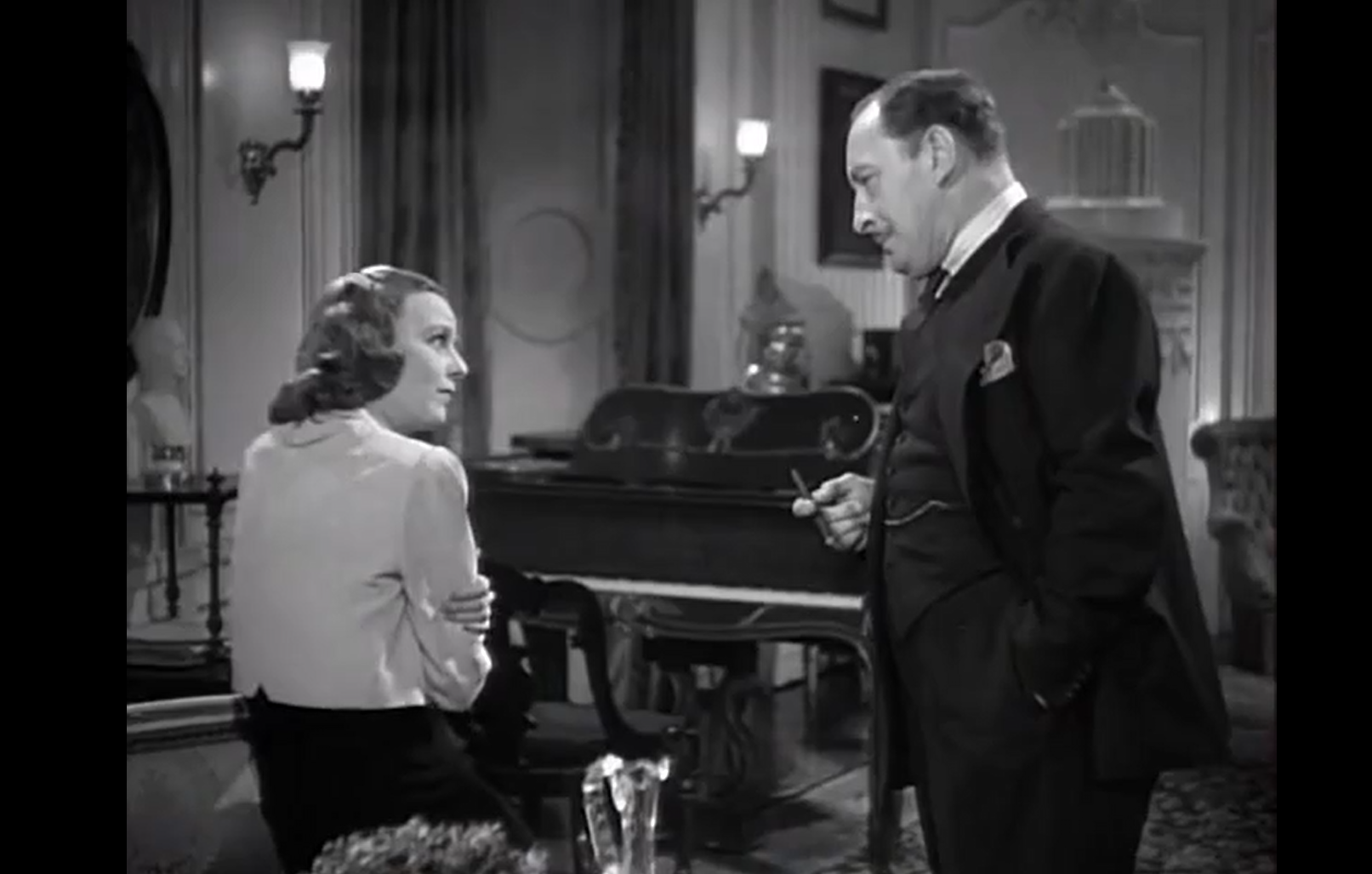
… whether she’ll tell Taylor she’s ill before they marry (she arguably should but doesn’t); and when she’ll die. Sullavan’s performance is indeed luminous and other-worldly — she’s a pleasure to watch. But overall, this one doesn’t quite live up to the praise Peary affords it.
Redeeming Qualities and Moments:
- Margaret Sullavan as Pat
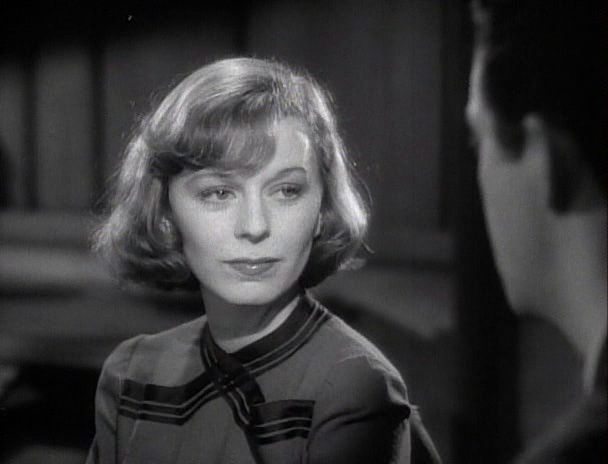
- Fine (though decidedly non-Germanic) performances by Taylor, Young, and Tone
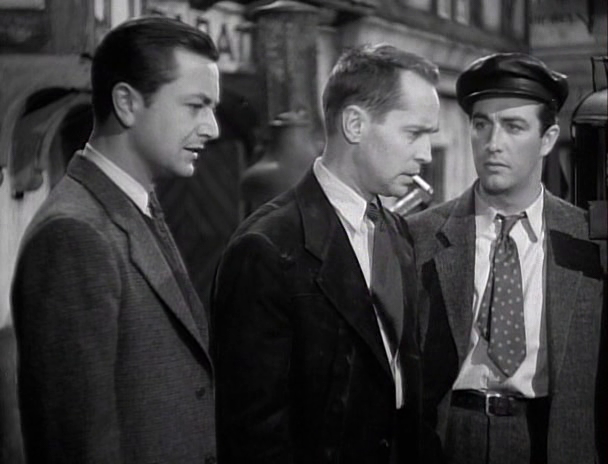
- Atmospheric cinematography
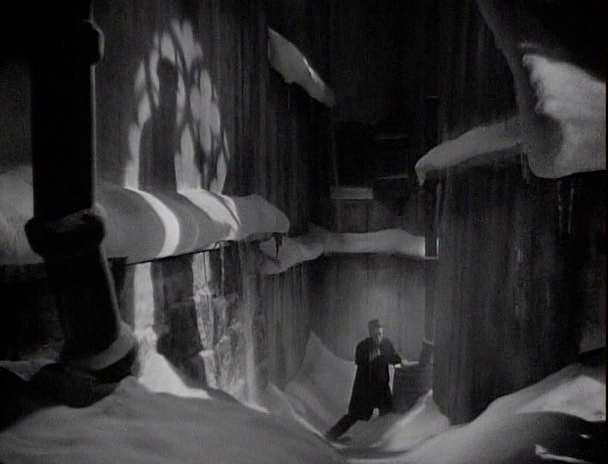
Must See?
No, though it’s worth a look for Sullavan’s performance.
Links:
|





One thought on “Three Comrades (1938)”
Agreed – not must-see, but not a terrible film all told (esp. in terms of some of the positive aspects brought out in the assessment).
What can be particularly irksome is something that’s true of so many Hollywood films that are either love stories or tearjerkers: the *amount* of time the lovers spend on telling each other how much in love with each other they are and what they mean to each other. Outside of Hollywood, who talks this way?!; esp. to the degree on display here?
It’s certainly true that Young’s character suffers from vague development (though it’s likely that was a casualty of script cuts).